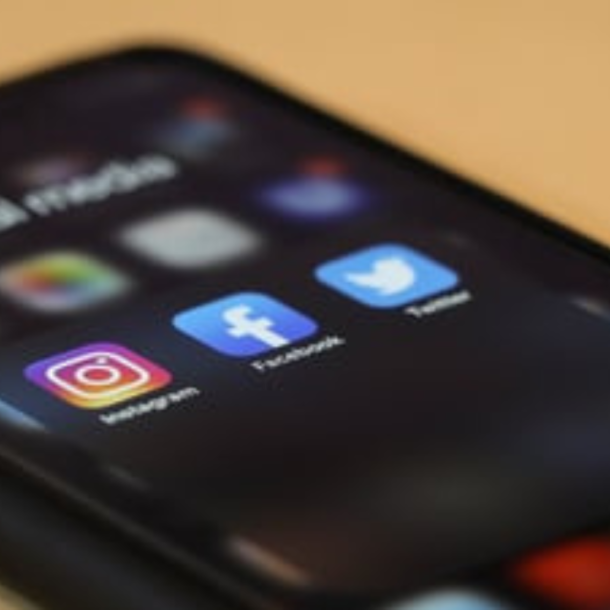
Connecting The Dots Between Personal Competencies & Personal Branding
Greetings Dr. Green,
Your perspectives are quite insightful. I agree with your ideas, “The right brand can transform an individual’s life while the wrong brand can destroy a person’s career hopes. Thus, spending adequate amount of time in developing your personal brand can create invaluable opportunities.” The creation of a personal brand is no easy task. These things often take time, energy, and effort. I first created my personal brand of “live F.O.R.T.E.” while brainstorming for a pageant platform. What started as a simple acronym to help me recall information has transformed into my life mantra. I even include “Forte” in the title of many of my personal business ventures. Glenn Llopis for Forbes.com takes a similar approach, “View your personal brand as a trademark; an asset that you must protect while continuously molding and shaping it. Your personal brand is an asset that must be managed with the intention of helping others benefit from having a relationship with you and / or by being associated with your work and the industry you serve.” (Forbes 2013).
Reference: Llopis , G. (2013, April 8). Personal Branding Is A Leadership Requirement, Not a Self-Promotion Campaign. Retrieved September 12, 2017, from https://www.google.com/amp/s/www.forbes.com/sites/glennllopis/2013/04/08/personal-branding-is-a-leadership-requirement-not-a-self-promotion-campaign/amp/
(WC-199)
Hi Taylor,
Thanks for your delightful posts! I love the concept of trademarking personal brands.
I must ask you. What does “F.O.R.T.E.” stand for?
What is it about?
Dr. Green
Hello Dr. Green,
Musictheory.org.uk defines the word “Forte” as “loud” or “strong.” The acronym I developed from the word is as follows: Foundation, Objective, Range, Time, and Expression. This concept applies to many aspects of my life including my faith, my business, my teaching style, and more. I have had many opportunities to encourage others to “Live F.O.R.T.E.” in their own unique way. Personally, I strive to live F.O.R.T.E. by remembering my foundations, by continually building on those foundations, and by celebrating my progress. As I set challenging yet realistic goals and objectives for myself, I grow and learn the value of perseverance and hard work. I work to utilize my vast range and ability to excel in a variety of areas. I make frequent use of one of my greatest skills, time management, and teach others to do the same. Finally, I strive to showcase my own style and expression in everything that I do. With “Live F.O.R.T.E.” as my personal trademark and brand, I am constantly reminded of my own philosophy of living loud, being strong, and staying true to who I am.
Reference: “Italian Musical Terms.” Italian Musical Terms, http://www.musictheory.org.uk/res-musical-terms/italian-musical-terms.php. Accessed 14 Sept. 2017.
(WC- 199)
Hi Taylor,
I thought your post was great! I also thought it was great that you have already developed your own trademark. I think that it would be huge for you if when people saw “live F.O.R.T.E.”, they instantly thought of you and/or your services or products. I also believe that trademarks are very important, and I hope one day yours helps you go places in business and in life.
Thank you for sharing!
Samuel Smith
Dear Taylor,
Thanks for sharing your thoughts on the topic. I concur with your statement of, “The creation of a personal brand is no easy task. These things often take time, energy, and effort”. A brand begins as a gift and then once discovered has to evolve. In order for a brand to develop it takes quite some time, as it needs to be challenged and chiseled to its perfection. Taking control of your personal brand may mean the difference between an unfulfilling job and a rewarding career (Clark, 2012). As Longfellow noted, “We judge ourselves by what we feel capable of doing, while others judge us by what we have already done.” Individuals needs to boost their confidence and not sell themselves short, each and every person is capable of achieving so much if they believe it.
WC – [137]
Reference:
Clark, D. (2014, December 16). Reinventing Your Personal Brand. Retrieved September 13, 2017, from https://hbr.org/2011/03/reinventing-your-personal-brand






Leave A Reply
Hi Dr. Green,
Thank you for sharing your thoughts. I agree that building the right competencies and personal brand are very important to our future. There are three general core competencies: competencies dealing with people, competencies dealing with business, and self-management competencies (Cripe, 2002). One of the core competencies that relates to my personal brand is the self-management competency. That was why all my former employers did not want me to leave. It is easily neglected by people who tend to pay more attention to competencies dealing with people and business. However, self-management competencies such as confidence, responsibility, and credibility are very important too. If competencies dealing with people and business are the reasons why employers hire people, then self-management competencies are the reasons why employers will keep them.
Reference:
Cripe, E. J. (2002, September 3). 31 Core Competencies Explained – Workforce Magazine. Retrieved September 11, 2017, from http://www.workforce.com/2002/09/03/31-core-competencies-explained/
Hello Huazhen,
Thanks for your considerate thoughts!
I would like to expand on your points. You stated: “…self-management competencies such as confidence, responsibility, and credibility are very important too. If competencies dealing with people and business are the reasons why employers hire people, then self-management competencies are the reasons why employers will keep them.”
In my professional world, we would call ‘self-management competencies’ soft skills. As engineers, we often devalue soft skills. We want things we can measure.
However, high performing organizations understand the value of core competences. Draft (2014) argued that effective leaders depend partly on developing diagnostic skills and being flexible to leadership behavior.
Reference:
Daft, R. (2017). Leadership. United States: Cengage Learning.